Maui faces a complex challenge. The island needs tourism to survive, yet many visitors and residents struggle to make it feel right. This article reflects real experiences from both sides of that equation. It is not a recommendation to avoid Maui after the Lahaina fire. Instead, it’s an honest look at what recovery actually means when grief and commerce must coexist.
Chris called Puamana paradise. For years, his family spent every post-Christmas week there, the same condo, the same ocean view, the same sense of coming home. Then the fires swept through Lahaina on August 8, 2023, killing 102 people, destroying more than 2,200 structures, and displacing thousands, leaving scars that are still visible to this day. Their winter rental was gone. They came back the following year anyway, staying near Kaanapali. But from the moment they arrived, something felt wrong.
“We swam at Black Rock and watched sunsets knowing so many died and lost everything,” Chris wrote recently. “We over-tipped and over-tipped, but it didn’t seem like enough. Friends we met over the years weren’t the same people. They lost it all.”
That tension, between wanting to return and feeling wrong for doing so, is now at the heart of Maui’s slow, complicated recovery.
It still doesn’t feel right.
Two years later, visitors like Chris remain torn. They want to support the island they love, yet they describe a sense of guilt that’s hard to shake. Some say they can’t relax knowing what happened just beyond the resort walls. Others describe an unspoken heaviness, as if the island is still in mourning and they are intruding on someone else’s grief.
That emotional weight, what some are calling “guilt tourism,” has become a quiet part of Maui’s visitor story. It’s the uneasy feeling of booking a vacation in a place where so many lives were lost. It’s watching the sun set over the same water that carried ashes to sea. It’s wondering whether your presence helps or harms.
Another longtime visitor told us she cried as she walked past Lahaina’s perimeter. A third said her favorite café reopened, but the owner’s eyes looked “hollow, like she was somewhere else entirely.” These aren’t complaints. They’re observations from people who care deeply but don’t know how to help.
The economics didn’t stop for anyone.
Even as emotions linger, the financial realities of Maui travel haven’t eased. Post-pandemic prices never really dropped, and post-fire costs have only risen. A condo that rented for $250 a night before the pandemic now starts near $400 or more. Car rentals that once felt reasonable top $100 a day. Dinners that were splurges are now the baseline.
“Post-pandemic, post-fire, even more expensive,” Chris wrote. From the Midwest, the long flight alone is a hurdle. Add rentals, resort fees, and the uncertainty of how to act once you arrive, and the weight grows heavier.
A Hawaii travel agent told Beat of Hawaii in recent interviews that she now spends half her time talking clients through those emotions. “Maui isn’t closed,” she said, “but it’s grieving. And that’s a different kind of destination to visit.”
The uncertainty extends beyond prices. Vacation rental owners say the proposed, and now softened, ban on some short-term rentals has devastated bookings even before any restrictions take effect. The mere discussion of limitations sent a message that Maui might not want visitors, and that perception has been nearly impossible to reverse. Business owners report cancellations and hesitant inquiries from guests who aren’t sure if their accommodations will even exist next year.
There has been damage caused by mixed messaging about whether Maui is ready for visitors, and the uncertainty around short-term rental bans has been as lasting as the flames themselves. For many, the perception that Maui might not want visitors has been nearly impossible to reverse. It has left Maui’s recovery as much about trust as tourism.
The friends who aren’t there anymore.
The people who once defined Maui for returning visitors aren’t all there anymore. The restaurant owner who remembered your order, the surf instructor who taught your kids, the musician who played the same song every night. Some are rebuilding, others have moved away for good. What remains feels quieter, still more fragile. The island looks the same, but the heartbeat feels different.
What Maui residents say now.
Multiple Maui business owners told Beat of Hawaii in recent interviews that they’re grateful to visitors who return respectfully and spend money in local places. Others quietly admit they still flinch when asked about Lahaina, tired of reliving the worst day of their lives. One person told us she sometimes closes early, not from lack of customers, but because the emotional work of smiling through grief can be too much even now.
To be clear, Maui needs visitors. The island’s economy cannot survive without tourism, and many residents have made that point repeatedly in comments. The conversation isn’t about whether people should come, it’s about how they come, what they expect, and whether they’re prepared for what they’ll find. Silence and avoidance don’t help Maui rebuild. Thoughtful tourism does.
Maui’s economy depends on tourism, but healing isn’t something that can be rushed. The two timelines, recovery and revenue, rarely align, even if they need to.
How to visit respectfully.
Visitors who do return can help by adjusting their approach. Support locally owned businesses, not chains. Avoid treating Lahaina’s perimeter like a photo opportunity. If someone shares their story, listen, but don’t ask for it. Respect.
None of this means staying away. Maui’s economy needs visitors now more than ever, but it also requires visitors who understand what they’re walking into. And above all, recognize that Maui is still finding its new rhythm. It may not feel the same, and maybe it shouldn’t.
We, too, will be back this fall.
Beat of Hawaii will return to Maui later this fall to see what has changed since our last visit one year ago. We also have friends who lost everything, some who barely escaped with their lives, others who decided after decades they couldn’t start over and left. Their stories stay with us. This trip isn’t about tourism marketing; it’s about listening and seeing how the island has evolved two years after the fires.
The distance between love and loss.
Chris ended his note with quiet finality: “Sadly, we are not going back. It might be a very long time until we do.” He had even thought about buying a small condo, but decided it was too risky, financially and emotionally. That’s not resentment. That’s heartbreak.
Every island in Hawaii has weathered tragedy, but Lahaina’s scars run deeper than others. The question now is whether time and empathy can bring back what was lost, if visitors can return without guilt, and if Maui can welcome them without pain.
Because in the end, both sides are still searching for the same thing: connection, understanding, and a reason to believe that paradise can still feel like home.
Chris called Puamana paradise, until the fires took it. Two years later, he still can’t return to Maui. Guilt follows him everywhere, and he’s not alone. Many longtime visitors feel the same quiet conflict.
Have you felt this same hesitation about returning to Maui, or do you see it differently?
Get Breaking Hawaii Travel News
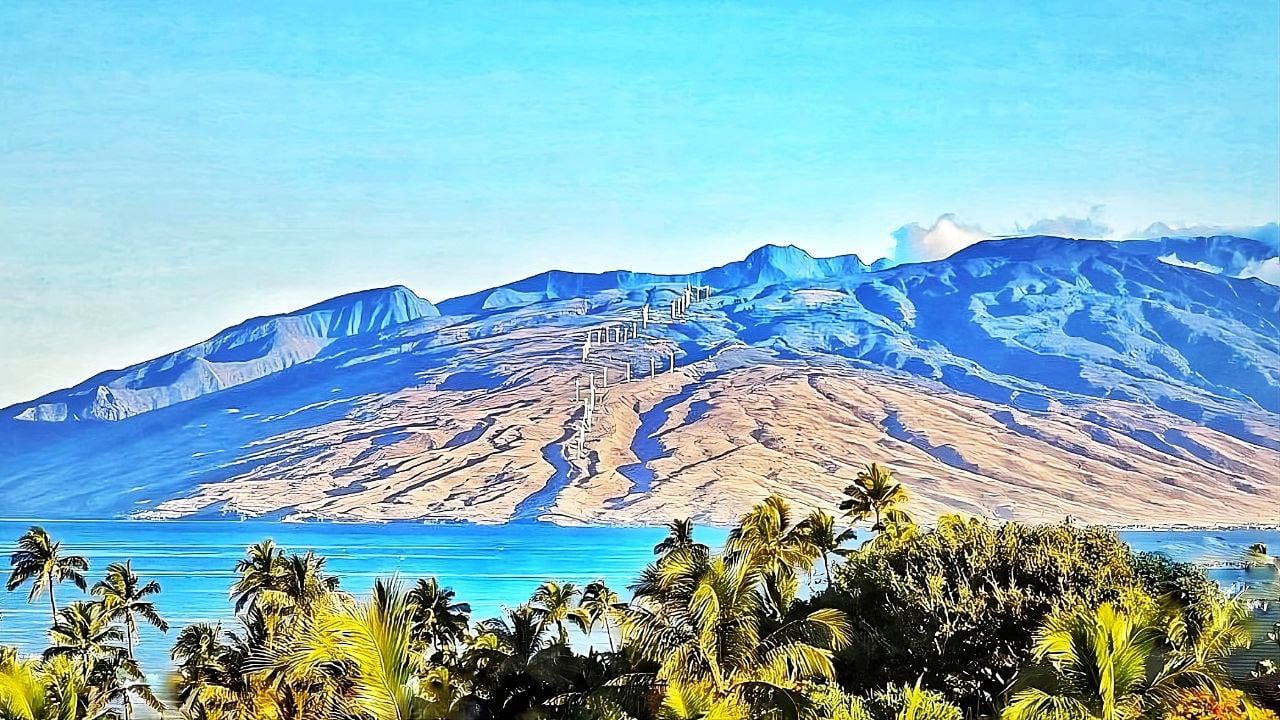

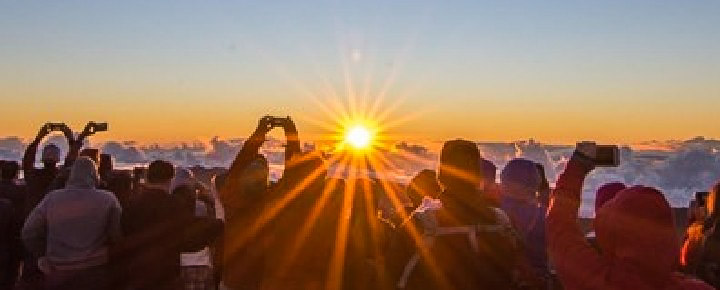
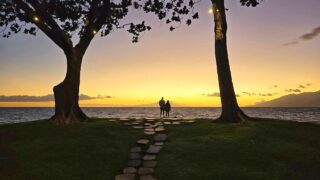
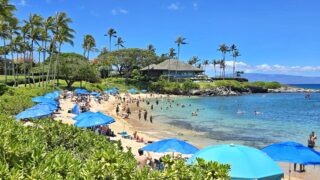
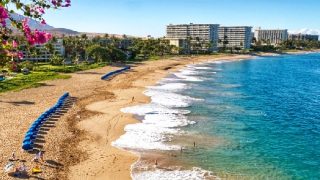

The problem for Maui is lack of leadership. Back 2 years ago there was catastrophic lack of leadership, not from the workers who tried in vain, but the ones on top who get paid to laid and were MIA.
Till today, Maui lacks insightful leadership, visionary’s who solve problems, not create more.
Resign Mayor Bissen!
Lahaina shares much in common with Pacific Palisades when it comes to rebuilding. Draconian, do-nothing administrations who sit on their hands. The common denominator though, is that they both keep voting the same type of people into office.
I was on Maui, staying at my timeshare north of the Westin complexes in May 2023 before the fire. When I returned last year, I talked with Donna who managed the property and she openly discussed what had happened. I sensed that there was something different in the mood of the island, and that was supported this year again. I think writer Chris got it right, when he said we felt a guilt when we visited, almost as though we were an uninvited attendant at a family wake. The guilt, an appropriate word, at coming to the Lahaina area to enjoy two weeks of fun and relaxation was palpable. Thanks, Chris, for defining the feeling I was experiencing, and still feel. I know that patronizing local business is one way to support the community, but somehow it doesn’t seem enough. I have made donations to the Maui Food Bank, but much more assistance in desperately needed from the county and the state to get the community back on its feet more quickly.
I don’t want to minimize what happened to Lahaina by any means. But there is much more to Maui than just Lahaina. We need to rebuild Lahaina – especially all of the homes that are still not rebuilt after two years. We need to rebuild Front Street and the businesses on both sides of the road – Makai and Mauka. When Front Street is rebuilt, it needs to be kept safe – especially at night. In recent years before the fire, we would get out of Lahaina soon after dark because Front Street was a place of drug dealing, crime and miscreants.
There is a lot more to Maui that needs to be supported. There’s plenty of resorts and vacation rentals in Kihei, Waliea and elsewhere that need to be visited in the meantime while the issues in Lahaina get sorted out.
What a thoughtful and educational article about Maui. I truly appreciate the constructive view. It helps explain how to empathize with local businesses as well as residents.
Entirely too sad for those who call Maui home. The magic has been compromised.
It’s going to take 10 to 20 years for the long range effects of the fire to even begin to abate.
If the County and State governments of Hawaii engage in proper and insightful governance then Maui will be all the better for it.
The governance on Maui has been poor to say the least. Homes are being rebuilt at a snails pace because building permits are not being approved. And forget about Front Street. There is still no plan for how to rebuild or agreement on what can be rebuilt.
But there’s much more to Maui than just Lahaina. Many of the restaurants and businesses on Front Street have had to relocate to Kihei and Wailea because they lost faith that they would ever be able to rebuild.
The Lahina fire was the fault of the fire department, who left the scene of the original fire after a few hours to go to lunch. Most fire scenes need to be monitored for several days – the Pacific Palisades fire in LA didn’t reignite till a week later. Both had in common the arrival of strong winds – and it didn’t occur to the fire to go back and monitor this occurrence.
So now, the Mayor of Maui has not let a good disaster go to waste – he immediately went after the condos owned by off islanders to make him more popular with the local Hawaiians.
You are right. Maui should be blaming their leaders for most of their problems. From the fire department, along with other city leaders that left their hydrants dry and their lack of a disaster plan. They also need to blame the mayor and other elected officials for not being proactive in their affordable housing. They have made visitors, feel unwelcome with bill 9 and they’re over taxation and fee of tourist. Maui needs to elect new mayor and Other positions. Some tourist are finding other places to go.
The whole thing is so heartbreaking. With Lahaina gone, we’ve been visiting other islands instead. And with the underlying sentiment that tourists contributed to the displacement of native Hawaiians, we’re not sure when we’ll go back, or if we ever will..
It’s really a shame. I can say honestly that the only thing displacing residents now is the lack of progress of approving building permits for home owners and the lack of construction workers. It’s shocking that after two years there has been such little progress on homes being rebuilt and no progress with rebuilding the businesses that burned on Front Street. At the same time, there is so much more to Maui than Lahaina. Kihei and Wailea have some of the island’s best shopping, restaurants, golf courses and resorts. Paia town, upcountry, and East Maui all have awesome things to do and places to visit.
There’s another important facet to this complicated situation.
Many business owners, especially in West Maui are hanging on by their fingernails. Staying away only adds to their problems. To be clear; there is no good option here but I believe that continuing to visit and do business with those who live in Maui is the lesser of two evils.
We’re returning in three weeks.
This is the best attitude to have, good for all involved.
Mahalo, and see you in 3 weeks.
Good Article BOH!
Jeff & Rob when you make the trip to Maui next how about setting up meetings with the Mayor and/or city council members and do a little investigative journalism? Ask some pointed questions.
Why after 2 years is the rebuilding/permitting process in Lahaina so slow and whats causing all of the delay? How can Mauis local government change that and help the homeowners rebuild faster?
Why isnt that the main focus vs Bill 9 and all the repercussions with the attempt to change private property condo rentals into apartment/homes.
Love to see you guys get after the elected officials.
Mahalo.. Kevin K.
I don’t feel guilty about going back. I feel angry that the people who caused this haven’t been held accountable. Visiting doesn’t erase what happened, but pretending that not going changes anything doesn’t either. I’ll go, spend money locally, and talk to anyone who wants to talk. That feels like the only thing that makes sense.
We went back to Maui this summer, not sure what to expect. It was emotional from the moment we landed. Our condo in West Maui, and the conversations everywhere circled back to what happened, people rebuilding, people still waiting, people who’d left for the mainland because they couldn’t do it again. There’s grief everywhere, but also gratitude.
As a resident, I’ll say this: most of us do appreciate visitors who come respectfully. But true it’s still raw. Some days are fine, others not. Please come with compassion more than curiosity.
I think Maui needs visitors back, but it has to be on Maui’s terms now. Listen first, spend locally, don’t come expecting the same old Maui, especially West Maui. But do come back.
I can’t imagine how people who lived through that are even standing today. If they want space, they’ve earned it. We’ve been going to Lahaina since 1987. Every December. I look at the old photos and can’t quite believe it’s gone. I want to come back, but I don’t know if I could handle seeing what’s missing.
We returned to West Maui this spring and it still didn’t feel the same. Beautiful as ever, but quieter somehow, and people just seemed tired. We spent more than usual, tipped big, but it still felt inadequate.
If visitors are feeling guilty, do what we did. Volunteer. We did so on a trip to Maui soon after the fires. It was the best thing we could have done for not just those in need, but for ourselves. We gained a lot of insight, some of which was not altogether pleasant. But the take-away was far greater than what we were able to give.
We have traveled to Maui for 30 plus years and 4 times since the Lahaina fire most recently in September which is supposed to be a slow month but the airport was busy and the to and from flights were full so it was busier the expected. As far as lodging we normally stay in Wailea but decided to stay at the Ritz in Kapalua and it was also busy and the resort staff was very pleasant and were very appreciative of the tourists that were visiting and appeared to be in great spirits with positive attitudes so in my opinion they showed no signs of not wanting us there. As far as expenses the airfare has definitely increased in price along with restaurant prices but the overall cost was well worth it and we plan on returning in February 2026. For those who choose to rent a condo through AirB&B there are hundreds of 2 bedroom waterfront units available in the 250.00 nightly range so there are some good lodging deals available for legal short term rentals that are exempt from the proposed ban
I’ve gone back to Maui twice this year–once with friends & one with family. Last winter we did our usual zodiac whale watching, and although it was operating out of a small building now, the whales were as prolific as ever! I’ve always loved Kula Lodge, but sadly it burned this summer. Like every other place, the islands are affected by climate change. Now summers are much hotter and dryer. But I will continue to visit all the islands, because they are relaxing and peaceful. Plus I want to support the locals!
We had our October vacation booked when the fire happened. Because we rarely left the Westside during our stay, we haven’t been able to go back. We say someday, but may never see our beloved West Maui again. The people and the land need time to heal.
The fact that there are so many people ridden with guilt, trepidation, and cautiousness about coming here is a telling sign that visitors to Maui, as a group, are kind, sensitive, and sympathetic to those struggling. I wish those who live here could recognize and appreciate that more.
Also, the mood you mention is almost nonexistent in South Maui (Kihei, Wailea, Makena, Maalaea, etc.) It is not the same as affected areas in Lahaina. Everything that was in South Maui pre-fire is still there. There is, of course, a somber respect when the subject of Lahaina comes up, but it comes up more and more rarely as time goes by. To me, it feels the same as before the fires.
BOH, when you come to Maui, please spend time in both West and South Maui. It’d be interesting if you could write a report on both.
My partner and I have returned to Maui every year since the devastating fires. I have a long history in Kaanapali dating back to the early 80s. My late husband and I owned a condo there for two decades. Our grown kids and their families still return, one family from the East Coast.
My partner and his late brother bought a lot near Hana in the 90s with the intention to build until the brother became ill. His ashes were scattered there.
During our month visit the first year after the fire, we were warmly welcomed by everyone we visited and encountered, never bringing up the tragedy then or since. We contribute monthly to the Maui Food Bank, and made contributions to three other organizations immediately.
We have made our plans for a two week visit in 2026, and can’t wait to be back.
I would never question someone else’s feelings but I honestly want to understand how if you travel respectfully you could do any harm